-
BackX
-
Components
-
-
Category
-
Semiconductors
- Diodes
- Thyristors
-
Electro-insulated Modules
- Electro-insulated Modules | VISHAY (IR)
- Electro-insulated Modules | INFINEON (EUPEC)
- Electro-insulated Modules | Semikron
- Electro-insulated Modules | POWEREX
- Electro-insulated Modules | IXYS
- Electro-insulated Modules | POSEICO
- Electro-insulated Modules | ABB
- Electro-insulated Modules | TECHSEM
- Go to the subcategory
- Bridge Rectifiers
-
Transistors
- Transistors | GeneSiC
- SiC MOSFET Modules | Mitsubishi
- SiC MOSFET Modules | STARPOWER
- Module SiC MOSFET ABB’s
- IGBT Modules | MITSUBISHI
- Transistor Modules | MITSUBISHI
- MOSFET Modules | MITSUBISHI
- Transistor Modules | ABB
- IGBT Modules | POWEREX
- IGBT Modules | INFINEON (EUPEC)
- Silicon Carbide (SiC) semiconductor elements
- Go to the subcategory
- Gate Drivers
- Power Blocks
- Go to the subcategory
- Electrical Transducers
-
Passive components (capacitors, resistors, fuses, filters)
- Resistors
-
Fuses
- Miniature Fuses for electronic circuits - ABC & AGC Series
- Tubular Fast-acting Fuses
- Time-delay Fuse Links with GL/GG & AM characteristics
- Ultrafast Fuse Links
- Fast-acting Fuses (British & American standard)
- Fast-acting Fuses (European standard)
- Traction Fuses
- High-voltage Fuse Links
- Go to the subcategory
- Capacitors
- EMI Filters
- Supercapacitors
- Power surge protection
- TEMPEST emission revealing filters
- Surge arrester
- Go to the subcategory
-
Relays and Contactors
- Relays and Contactors - Theory
- 3-Phase AC Semiconductor Relays
- DC Semiconductor Relays
- Controllers, Control Systems and Accessories
- Soft Starters and Reversible Relays
- Electromechanical Relays
- Contactors
- Rotary Switches
-
Single-Phase AC Semiconductor Relays
- AC ONE PHASE RELAYS 1 series| D2425 | D2450
- One phase semiconductor AC relays CWA and CWD series
- One phase semiconductor AC relays CMRA and CMRD series
- One phase semiconductor AC relays - PS series
- Double and quadruple semiconductor AC relays - D24 D, TD24 Q, H12D48 D series
- One phase semiconductor relays - gn series
- Ckr series single phase solid state relays
- One phase AC semiconductor relays for DIN bus - ERDA I ERAA series
- 150A AC single phase relays
- Rail Mountable Solid State Relays With Integrated Heat Sink - ENDA, ERDA1 / ERAA1 series
- Go to the subcategory
- Single-Phase AC Semiconductor Relays for PCBs
- Interface Relays
- Go to the subcategory
- Cores and Other Inductive Components
- Heatsinks, Varistors, Thermal Protection
- Fans
- Air Conditioning, Accessories for Electrical Cabinets, Coolers
-
Batteries, Chargers, Buffer Power Supplies and Inverters
- Batteries, Chargers - Theoretical Description
- Modular Li-ion Battery Building Blocks, Custom Batteries, BMS
- Batteries
- Battery Chargers and Accessories
- Uninterruptible Power Supply and Buffer Power Supplies
- Inverters and Photovoltaic Equipments
- Energy storage
- Fuel cells
- Lithium-ion batteries
- Go to the subcategory
-
Automatics
- Spiralift Lifts
- Futaba Drone Parts
- Limit Switches, Microswitches
- Sensors, Transducers
-
Infrared Thermometers (Pyrometers)
- IR-TE Series - Water-proof Palm-sized Radiation Thermometer
- IR-TA Series - Handheld Type Radiation Thermometer
- IR-H Series - Handheld Type Radiation Thermometer
- IR-BA Series - High-speed Compact Radiation Thermometer
- IR-FA Series - Fiber Optic Radiation Thermometer
- IR-BZ Series - Compact Infrared Thermometers
- Go to the subcategory
- Counters, Time Relays, Panel Meters
- Industrial Protection Devices
- Light and Sound Signalling
- Thermographic Camera
- LED Displays
- Control Equipments
- Go to the subcategory
-
Cables, Litz wires, Conduits, Flexible connections
- Wires
- Cable feedthroughs and couplers
- Litz wires
- Cables for extreme applications
- Sleevings
-
Braids
- Flat Braids
- Round Braids
- Very Flexible Flat Braids
- Very Flexible Round Braids
- Cylindrical Cooper Braids
- Cylindrical Cooper Braids and Sleevings
- Flexible Earthing Connections
- Galvanized and Stainless Steel Cylindrical Braids
- PCV Insulated Copper Braids (temp. up to 85C)
- Flat Aluminium Braids
- Junction Set - Braids and Tubes
- Go to the subcategory
- Traction Equipment
- Cable Terminals
- Flexible Insulated Busbars
- Flexible Multilayer Busbars
- Cable Duct Systems
- Go to the subcategory
- View all categories
-
Semiconductors
-
-
- Suppliers
-
Applications
- CNC Machine Tools
- DC and AC Drives (Inverters)
- Energetics
- Energy bank
- Equipment and Components for Hazardous Areas [Ex]
- Equipment for Distribution, Control and Telecommunications Cabinets
- HVAC Automation
- Induction Heating
- Industrial Automation
- Industrial Protective Devices
- Machines for Drying and Wood Processing
- Machines for Thermoforming Plastics
- Mining, Metallurgy and Foundry
- Motors and Transformers
- Power Supplies (UPS) and Rectifier Systems
- Printing
- Temperature Measurement and Regulation
- Test and Laboratory Measurements
- Tram and Railway Traction
- Welding Machines
-
Assembly
-
-
Inductors
-
-
Induction devices
-
-
Service
-
- Contact
- Zobacz wszystkie kategorie
Power Electronics – Shaping the Future of Industry and Energy

Power electronics is an essential field of modern industrial and energy technology, enabling control, conversion, and optimization of electric power flow in various systems. It allows for increased industrial efficiency, reduced emissions, and integration of renewable energy sources into the power grid.
Modern power electronics solutions include industrial drive equipment, energy storage systems, motor controllers, and energy conversion units. Increasingly important are modern power semiconductors such as IGBTs, MOSFETs, as well as SiC and GaN, which improve efficiency and reduce energy losses.
The energy transition and sustainable industrial development make power electronics increasingly important in minimizing energy losses and ensuring safe operation of industrial systems. With precise power electronics devices, it is possible to collect measurement data on energy flow, stabilize voltage, and control current in real time.
What is power electronics?
Power electronics is a field combining technology, electronics, and energy engineering, which enables control and conversion of electrical energy in industrial and energy systems. In practice, this involves the use of converters, inverters, and energy conversion systems (AC/DC, DC/AC, DC/DC, AC/AC), motor controllers, energy storage systems, and power supply units for efficient energy transmission and management. Its foundation consists of power semiconductors and control circuits, which determine system efficiency and stability.
The goal of power electronics is to increase energy efficiency of industrial and power systems, which reduces losses and lowers greenhouse gas emissions. In the era of the transition to sustainable energy, power electronics is a cornerstone for global industrial development and building modern energy infrastructure.
Applications of power electronics in industry
In modern industry, power electronics has wide applications across different sectors – from production, through transportation, to energy storage. Power electronics devices enable:
- Increased production efficiency – controlling electric motor drives allows precise adjustment of machine speed and torque, reducing energy losses, limiting inrush currents, and minimizing downtime.
- Energy consumption optimization – power electronics systems provide precise measurement data and enable energy flow management, reducing operational costs.
- Integration of renewable energy sources – photovoltaic systems, wind farms, and energy storage units can be effectively connected to industrial networks via inverters and other converter systems.
- Reduction of greenhouse gas emissions – effective energy management reduces fossil fuel consumption and CO₂ emissions.
- Improved system reliability – power electronics ensures voltage regulation and machine stability, minimizing the risk of downtime.
Power electronics in the energy sector
Not only industry benefits from power electronics solutions. In the energy sector, these devices support the transition to more sustainable energy generation. Power electronics enables, among others:
- Decarbonization of energy systems – through integration with renewable energy sources and reduction of transmission and distribution losses.
- Real-time energy flow management – HVDC systems, STATCOM, and advanced converters allow control of active and reactive power and dynamic network stabilization.
- Energy storage – energy storage systems combined with converters (PCS) stabilize voltage and improve energy quality.
- Electromobility – power electronics supports electric vehicle charging infrastructure and EV drive systems.
Currently, power electronics solutions are also applied in the global industry, where the role of renewable energy sources and energy storage systems is growing.
Technologies and innovations
The development of power electronics is associated with rapid technological progress in:
- Industrial inverters and converters – enabling control of high loads.
- Energy storage systems – allowing energy usage during peak periods.
- HVDC and STATCOM solutions – improving electric power quality.
- Automation and digitalization of processes – integrating measurement, control, and energy management systems.
- SiC and GaN semiconductors – ensuring higher efficiency and lower losses.
Thus, power electronics contributes to the development of sustainable industry, emission reduction, and increased energy efficiency.
Impact of power electronics on industrial efficiency
- Increased production efficiency through precise control of machines and drives.
- Reduced downtime thanks to power stabilization.
- Energy consumption optimization and reduced operational costs.
- Improved safety and reliability of industrial and energy systems.
- Support for the energy transition and renewable energy integration.
Conclusion
Power electronics is a cornerstone of the energy transition and modern industrial development. It enables increased energy efficiency, improved reliability of industrial systems, and integration of renewable energy sources.
Modern power electronics shapes the future of industry and energy, supporting the development of a more sustainable and efficient energy economy.
We invite you to explore our offer – we provide modern power electronics solutions that enhance efficiency and reliability in industry.
Related products
Related posts
 Thermally conductive materials in power storages
Thermally conductive materials in power storages
 Measuring power and energy in electric circuits
Measuring power and energy in electric circuits
 Wentylatory przemysłowe - rodzaje, właściwości
Wentylatory przemysłowe - rodzaje, właściwości




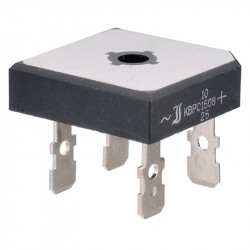
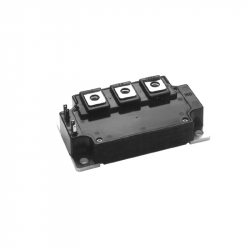
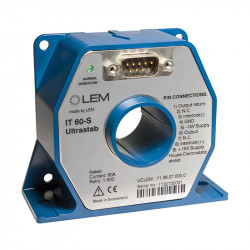
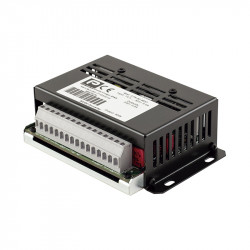
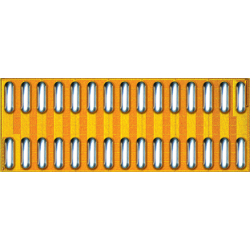
Leave a comment